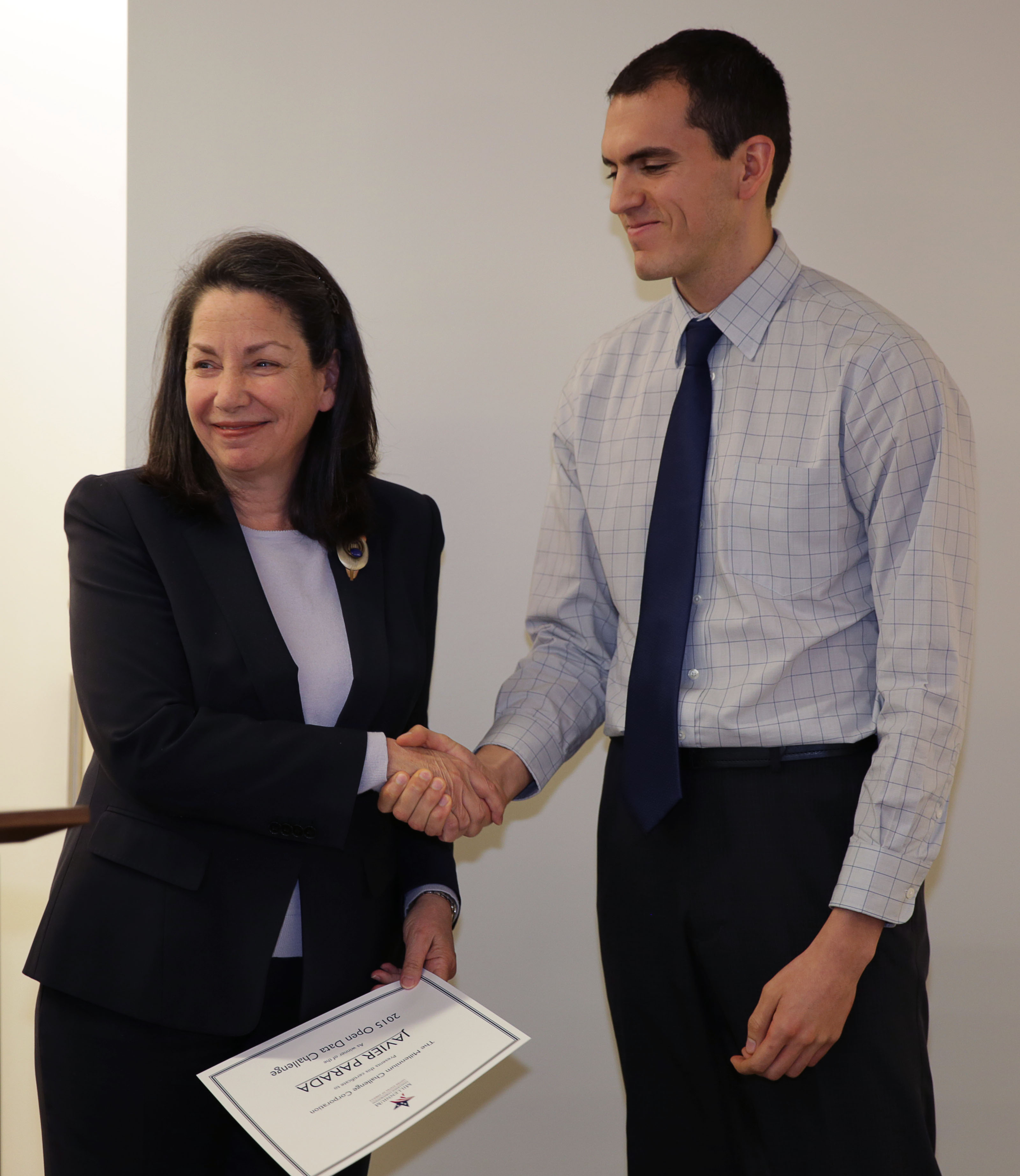
MCC
MCC Deputy Chief Executive Officer Nancy Lee, left, congratulates Javier Parada, winner of MCC's first Open Data Challenge. Parada used MCC's publicly available data to create an innovative model for considering how rural communities can benefit from paved roads.
In February, MCC celebrated the completion of our first Open Data Challenge by honoring the winners and bringing together independent evaluators, colleagues from across government, open data advocates, and the public. As with any new venture, we learned a few lessons along the way, and we’re excited to build on the success of the first Open Data Challenge by launching round two.
The Challenge was born out of a desire within MCC to gain deeper insights into our evaluation results and the efficacy of our programs to improve our work, and encourage the use of our data as a global public good that can drive development effectiveness beyond MCC. So we asked graduate students to analyze our public evaluation data and submit their findings with a chance to present their work to MCC senior management, researchers, practitioners, and policymakers.
This was our first attempt to foster widespread use of our evaluation data―and we learned a lot. Winner Javier Parada introduced us to an innovative model for considering how rural communities can benefit from paved roads. Discussions with an MCC evaluation team and our honorable mention recipient, Jacqueline Homann, demonstrated how a challenge like this can both deepen our understanding of the results embedded in MCC’s data and hone students’ analytical skills.
This first challenge also showed us that we have some work to do to make our evaluation data truly useable by the public and encourage replication and learning from our results. As we launch the second Open Data Challenge, we’re working to build on a few key lessons:
- Students are a prime audience for an open data challenge. They bring fresh eyes and an eagerness to engage with free, public data.
- For open data to be most useful, MCC, independent evaluators, and MCC country partners need to consider the ultimate users of the data early in the process. What information does the public need to use the data well?
- There may be a trade-off between protecting the identity of respondents and fostering the usability of evaluation data. How do we make open data most usable by the public while still protecting respondents?
- Communication between evaluators and students who seek to use the data can increase the quality of open data analysis. How can MCC best support collaboration between evaluators and students in a way that fosters productive debate?
MCC has long been committed to learning from our own evaluations. By promoting the use of MCC-financed data resources among students, we can help build the next generation of practitioners, researchers, and policy makers. We’re excited to be opening the door to further exploration of our data to drive smarter, more effective projects that transform lives and fight poverty.
Learn more about the Open Data Challenge 2.0 and how to get involved. We look forward to hearing your ideas!

